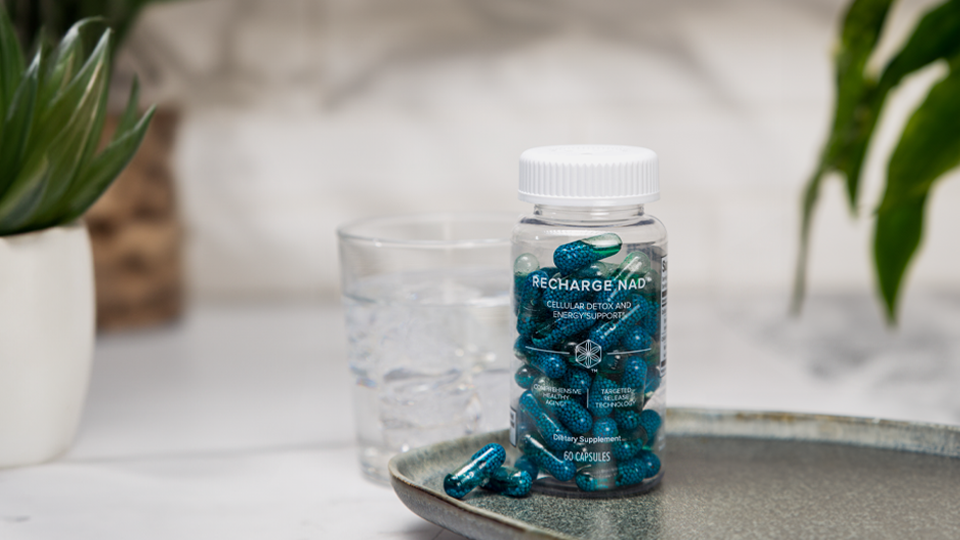When’s the last time you had your cholesterol checked? If you got a passing grade at your physical five years ago and think you’re in the clear, you may want to think again. Increased levels of artery-clogging cholesterol often coincide with age. So it’s important to schedule a routine appointment with your doctor.
While nothing can ever replace proper advice from a physician about how to manage cholesterol, there are a few well-known changes that can be made through diet and lifestyle that can help with overall maintenance of healthy cholesterol levels.
Cholesterol 101
The body produces some cholesterol while some of it comes from the foods you eat. Your liver cells and other cells in your body make about 75 percent of cholesterol. The rest comes from foods, especially animal products such as shellfish, meat, butter, and eggs.
Once cholesterol enters the blood stream, carriers called lipoproteins transport it to cells. You can think of lipoproteins as spheres packed with triglycerides (fats), protein, and cholesterol that float around in your blood. There are two types of lipoproteins and thus two forms of cholesterol: low-density lipoprotein (LDL) and high-density lipoprotein (HDL).
LDL cholesterol molecules are composed mostly of cholesterol with a small amount of triglycerides and protein and work to deliver cholesterol to cells. Too much of LDL cholesterol can cause buildup in the inner walls of your arteries resulting in decreased blood flow to the heart and brain. A complete block of the artery, or a clot, can result in a heart attack or stroke.
If LDL is the “bad” cholesterol, then HDL is the “good” cholesterol. HDL cholesterol molecules are composed mostly of protein with only small amounts of cholesterol and triglycerides. (Protein is more dense than cholesterol, hence the name “high-density lipoprotein”.) HDL molecules pick up excess cholesterol and deliver it back to the liver to be excreted from the body. High HDL levels have been linked to decreased risk of heart disease, possibly because they assist in the removal of buildup in arteries.
Your total cholesterol count is a combination of LDL and HDL along with triglycerides and a lesser known genetic variation of LDL cholesterol known as Lp(a) cholesterol. The desired total blood cholesterol count for adults is below 200 mg/dL.
Lower “bad” cholesterol, increase “good” cholesterol
According to the U.S. Centers for Disease Control, about one in six adults in the US have high cholesterol, putting them at a higher risk for heart disease. Cholesterol-lowering drugs have helped many people, however, there are some drawbacks such as depleted levels of the energy-producing antioxidant CoQ10. While genetics can influence your risk of high cholesterol, science has shown that lifestyle changes can help improve your cholesterol levels:
- Participate in regular physical activity: Engaging in at least 150 minutes of moderate-intensity aerobic exercise (brisk walking) or 75 minutes of intense aerobic PA (running, jogging) per week is touted by the American Heart Association to support health cholesterol levels.
- Include viscous soluble fiber in your diet: A diet high in viscous soluble fiber (such as from oats) is shown to help reduce cholesterol levels (2-3). When ingested, viscous soluble fiber forms a gel-like substance and can bind with cholesterol and reduce the amount absorbed into your bloodstream.
- Be conscious of cholesterol in your diet: How much dietary cholesterol contributes to your blood cholesterol levels varies person to person. A good rule of thumb: eat less than 300 milligrams of cholesterol per day for a healthy individual and less than 200 milligrams per day for someone with an increased risk of heart disease (1).
- Get enough healthy fats: Replace saturated and trans fats with healthy fat sources. People who follow a diet high in omega-3 fatty acids (similar to a Mediterranean diet) have been shown to have healthier blood lipid levels (4). Olive oil, flaxseed, hemp seed, and fish such as salmon are good sources of omega-3s. You can also supplement your diet with omega-3s.
- Don’t smoke: If you are a smoker, quit. Quitting smoking can decrease your cholesterol by up to 10 percent (5).
The good news for those with high cholesterol is that there are many diet and lifestyle changes that can improve health. Make these small changes and your heart will thank you.
References
- American Heart Association: http://www.heart.org/HEARTORG/
- Wolever et al. Physicochemical properties of oat beta-glucan influence its ability to reduce serum LDL cholesterol in humans: a randomized clinical trial. Am J Clin Nutr. 2010;92:723-732.
- Institute of Medicine. Dietary, Functional, and Total Fiber. Dietary Reference Intakes for Energy, Carbohydrate, Fiber, Fat, Fatty Acids, Cholesterol, Protein, and Amino Acids. Washington, D. C.: National Academies Press; 2002:265-334.
- Mozaffarian et al. Interplay between different polyunsaturated fatty acids and risk of coronary heart disease in men. Circulation. 2005;111(2):157-164.
- Mayo Clinic: http://www.mayoclinic.com






